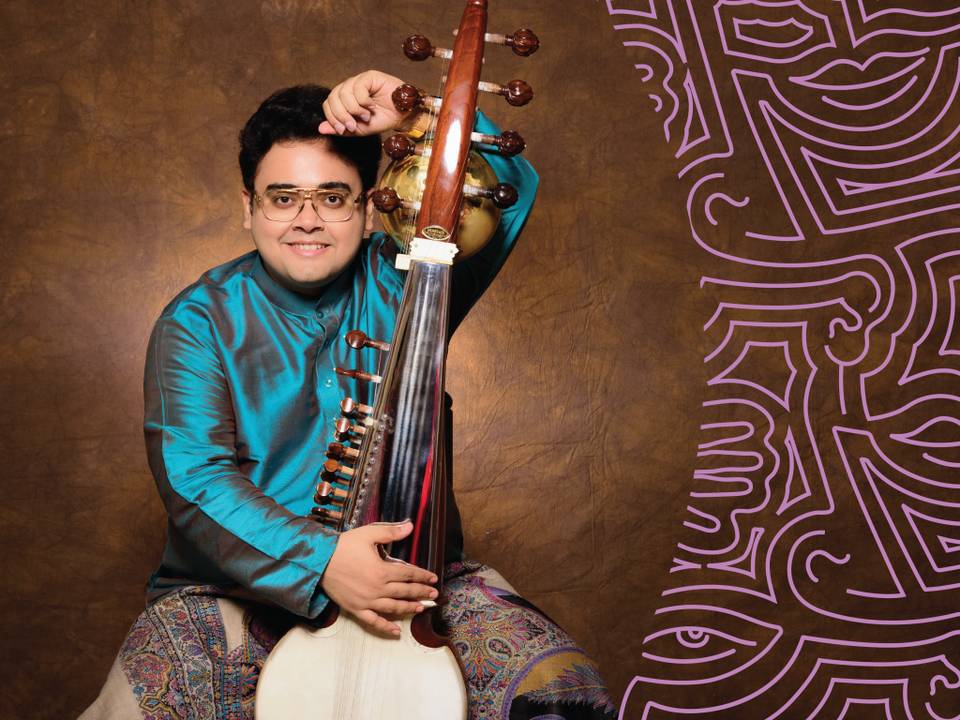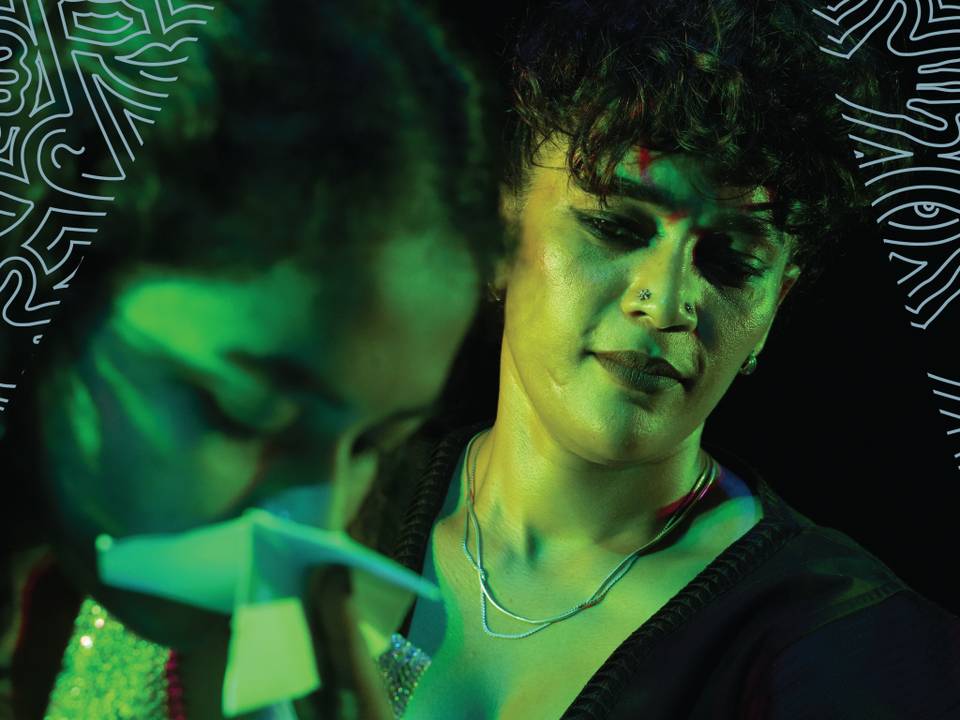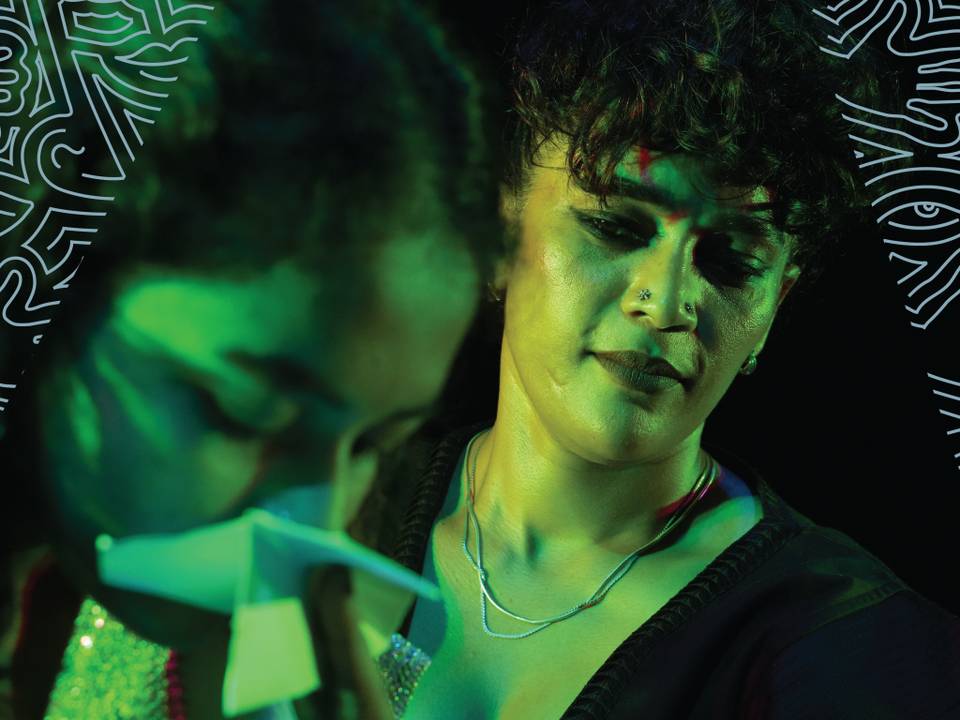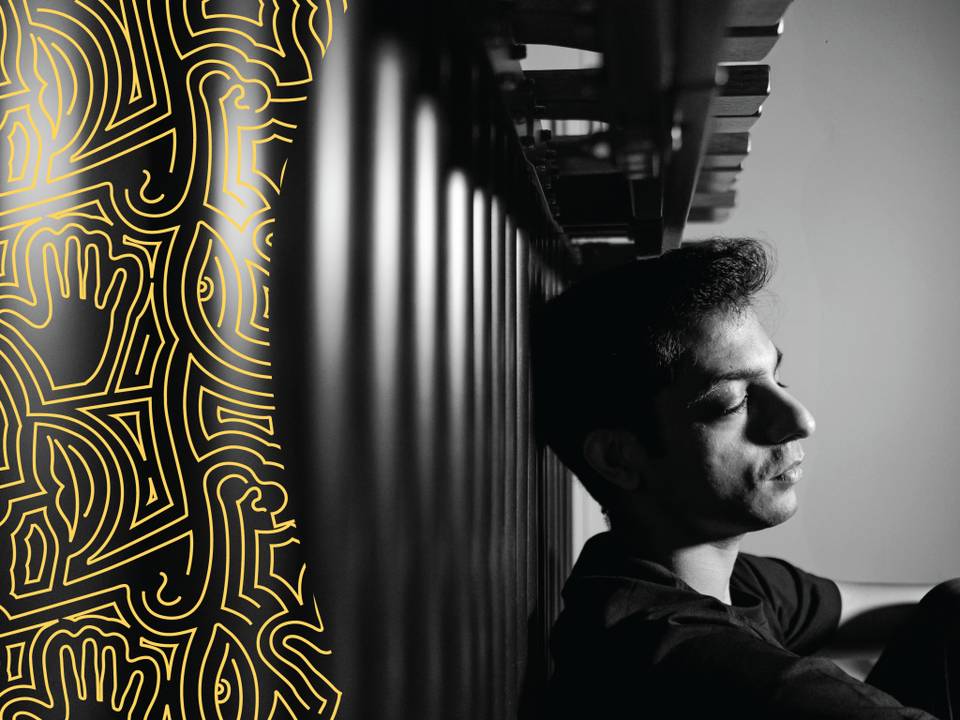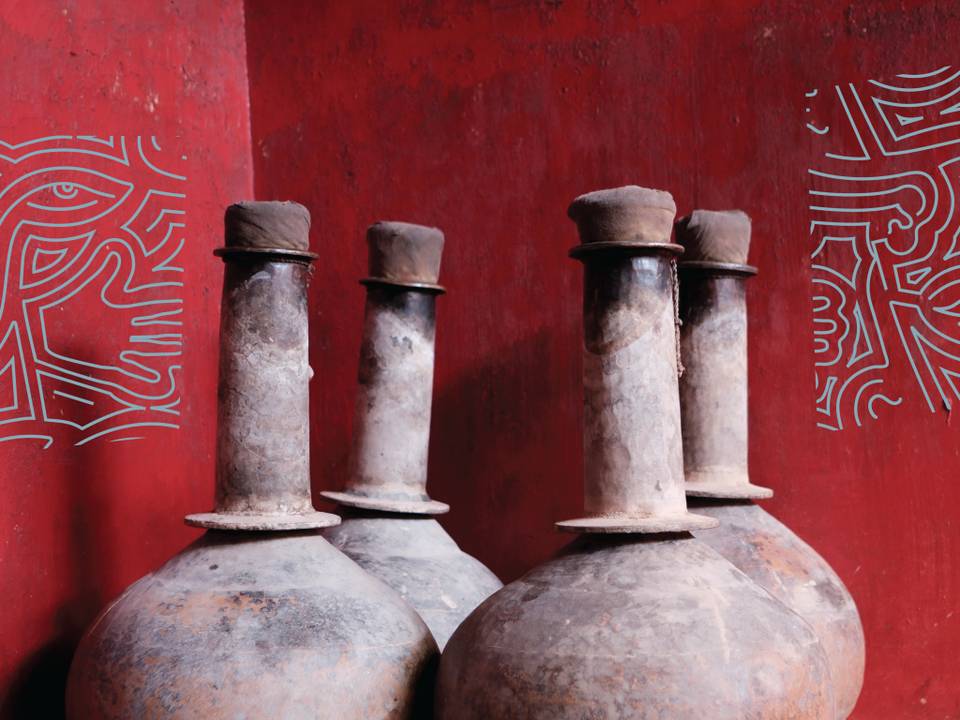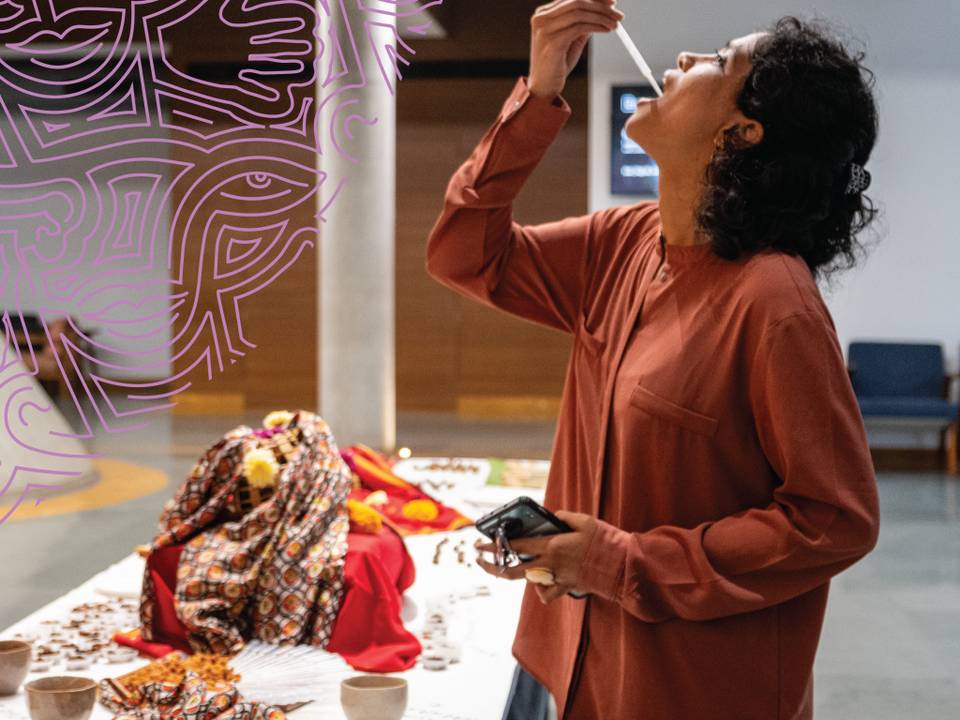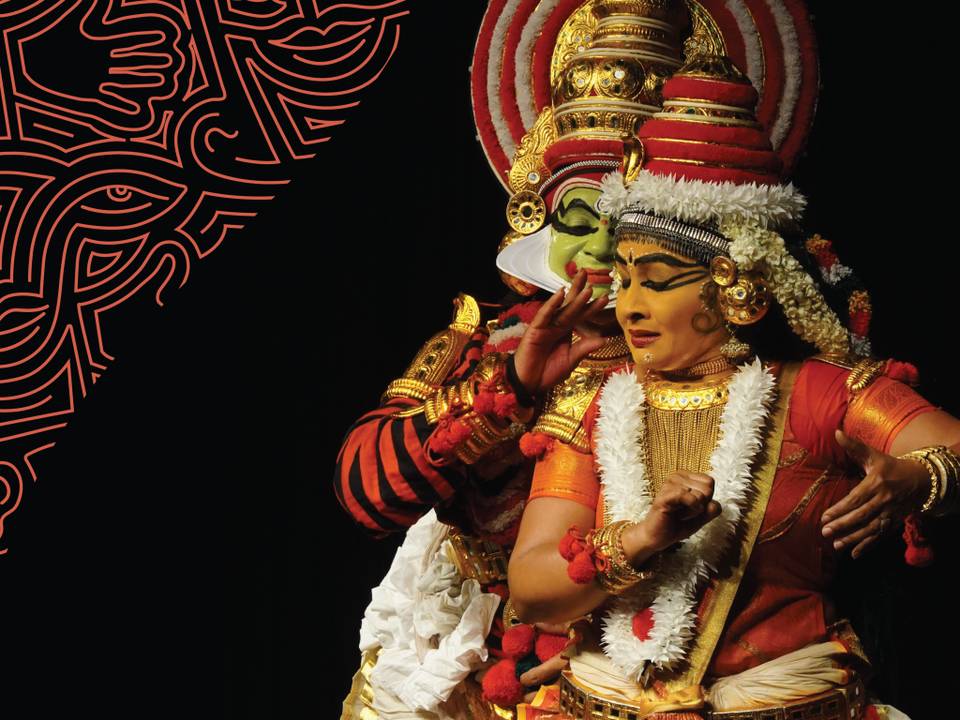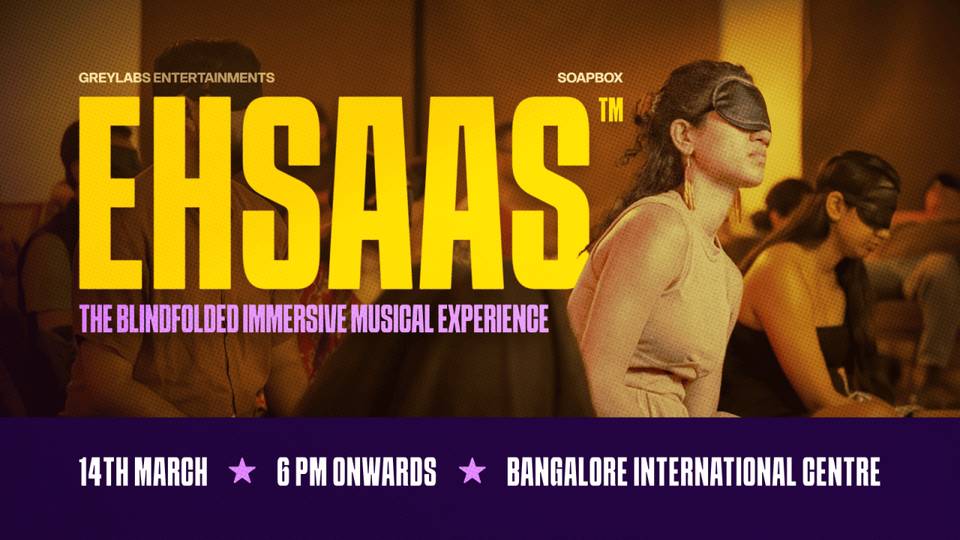ಬೆಳೆಯೋಣ ಬೆರೆಯೋಣ | Growing Together ಹದಿಹರೆಯದವರ ಸಬಲೀಕರಣ – ಅರಿವು ಮತ್ತು ಒಳಗೊಳ್ಳುವಿಕೆಯ ಮೂಲಕ Empowering Adolescents through Understanding and Inclusivity
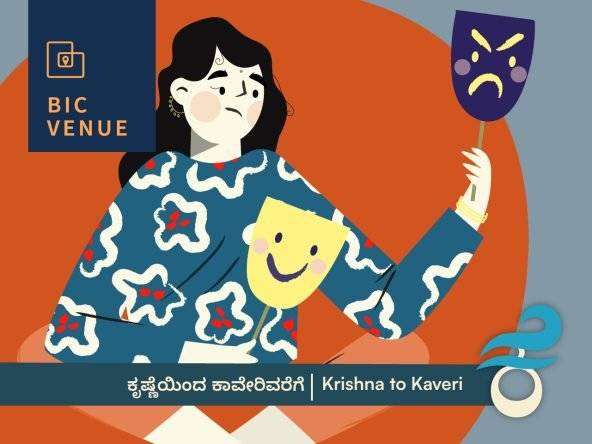
Details
Nov 10 2024 to Nov 10 2024 noon
EVENT HAS ENDED
Where
Bangalore International Centre
7 4th Main Rd, Stage 2, Domlur 560071
Event Description
Adolescence is linked to puberty, a stage in which the adolescent becomes integrated with society of adults. This stage is accompanied by dramatic biological, intellectual, and psychological changes from 10–19 years. 40% of the Indian population belongs to this group. They may face problems individually or as a group. Individually, they need for privacy, family relationships, reflection on gender, and changes in circumstances. As a group, they face study problems, withdrawal, acting out, absenteeism, and problems with peers.
Family problems consist of discipline, relations with siblings, feelings of victimized, hypersensitivity, immediate rebellion against grown-ups, and lack of self-control.
Mental health problems consist of sexuality, normal or otherwise, gender identity, school dropout, drugs or alcohol, internet, and gaming addiction. In addition, they may have various disabilities. An intensive approach is needed to deal with them. Better awareness and education is required along with brain and psychological parameters. How to bring about well-being among the adolescents is and should be the leader in what we need to focus on.
ಹದಿಹರೆಯ: ಹದಿಹರೆಯವು, ಯುವಜನರ ವಯಸ್ಸಿನ ಗುಂಪಿನಲ್ಲಿ ಪ್ರಾಮುಖ್ಯತೆಯ ಒಂದು ವಿಶೇಷತೆಯಾಗಿದೆ. ಹದಿಹರೆಯವನ್ನು ಈಗ ವಿಶ್ವದಾದ್ಯಂತ ಗುರುತಿಸಲಾಗಿದೆ. ಈ ವಿಷಯವು ತರುಣರಲ್ಲಿ ಹಲವಾರು ದೈಹಿಕ, ಭಾವನಾತ್ಮಕ ಮತ್ತು ಮಾನಸಿಕ ಬದಲಾವಣೆಗಳನ್ನು ತರುತ್ತದೆ. ಇದು 10 – 19 ವರ್ಷಗಳ ನಡುವೆ ನಡೆಯುತ್ತದೆ. ಭಾರತದ 40% ಜನಸಂಖ್ಯೆಯು ಈ ವರ್ಗಕ್ಕೆ ಸೇರುತ್ತದೆ. ಈ ವಿಷಯದಲ್ಲಿ ಸಾಮಾಜಿಕ ಮಟ್ಟದಲ್ಲಿ ಅರ್ಥ ಮಾಡಿಕೊಳ್ಳಬೇಕಾದ ಯುವಜನರ ಸಮಸ್ಯೆಗಳನ್ನು ಎದುರಿಸುವ ಸಾಧ್ಯತೆಗಳಿರುತ್ತದೆ. ಏಕೆಂದರೆ ಅವಶ್ಯಕತೆ, ವೈಯಕ್ತಿಕ ಸಂಬಂಧಗಳು, ಆರ್ಥಿಕ ಸ್ಥಿತಿ, ತಂದೆತಾಯಿ ಭಾವನೆ ಮತ್ತು ಪರಿಸರ ಈ ನಡುವೆ ಬದಲಾವಣೆಗಳು ಇರುವ ಸಾಮಾಜಿಕ ಸಮಸ್ಯೆಗಳು.
ಒಂದು ವರ್ಗದಲ್ಲಿ ಯುವಜನರ ಕಲಿಕೆಯ ಸಂಬಂಧಿತ ಸಮಸ್ಯೆಗಳು, ನಡವಳಿಕೆಯ ಸಮಸ್ಯೆಗಳು, ಮಾನಸಿಕ ಸಮಸ್ಯೆಗಳು, ಲೈಂಗಿಕ ತಂದೆತಾಯಿ ಶುದ್ಧತೆ, ಸಾಮಾಜಿಕತೆಯಿಂದಿನ ಸಮಸ್ಯೆಗಳು ಇವುಗಳನ್ನು ಎದುರಿಸುತ್ತಾರೆ.
ಕುಟುಂಬದಲ್ಲಿನ ಸಮಸ್ಯೆಗಳಿಂದಾಗಿ, ಲೈಂಗಿಕತೆ, ಒಡನಾಟದಿಂದಾಗಿನ ಸಂಬಂಧ, ದುರುಪಯೋಗ ಎನ್ನುವ ಭಾವನೆ, ಅತಿಯಾದ ಸ್ವಾತಂತ್ರ್ಯಗಳಿಗಾಗಿ, ಅಪರಿಪಕ್ವತೆ, ದುಡುಕುವವರನ್ನು ಸ್ವೀಕರಿಸುವುದು ಮುಂತಾದ ಸಮಸ್ಯೆಗಳು ಇಲ್ಲದಿರುವುದು.
ಹದಿಹರೆಯದ ಸಮಯದ ಮಾನಸಿಕ ಸಮಸ್ಯೆಗಳು ಹಿಂಸಾತ್ಮಕತೆ (ಮಾನಸಿಕ ಅಥವಾ ಅಮಾನಸಿಕ), ಅವರ ಹಿಂಸಾತ್ಮಕ ಗುರುತು, ಲೈಂಗಿಕತೆ, ಮದ್ಯ – ಮಾದಕ ವಸ್ತು ಸೇವನ, ಇಂಟರ್ನೆಟ್ ಮುಂತಾದ ದುರ್ಬಳಕೆಯ ಚಟಗಳ ಇವುಗಳನ್ನು ಒಳಗೊಂಡಿರುತ್ತದೆ. ಇವುಗಳಿಂದಾಗಿ, ಇವರುಗಳು ಹಲವು ತರಹದ ಅಂಗವಿಕಲತೆಗಳನ್ನು ಕೂಡ ಹೊಂದಿರಬಹುದು. ಇವುಗಳನ್ನು ನಿರ್ವಹಿಸಲು ಒಂದು ಸಮೀಕ್ಷಾತ್ಮಕ ಅಧ್ಯಯನದ ಅವಶ್ಯಕತೆ ಇದೆ. ಆದರೆ, ಇವುಗಳಲ್ಲಿ ಕೆಲವು ಮುಂತಾದ ಮಾನಸಿಕ ಮುನ್ನಡೆಗಳಲ್ಲಿ ಕಣ್ಣು ಮುಂತಾದ ಸ್ಥಿತಿಯಲ್ಲಿ ಮಕ್ಕಳು ಹೆಚ್ಚು ಹೆಚ್ಚಾಗಿರುತ್ತಾರೆ. ನಾವು ಯುವಜನರಲ್ಲಿ ಸಮಗ್ರ ಆರೋಗ್ಯ ಸೇವೆಯನ್ನು ಮತ್ತು ಪರ್ಯಾಯ ಸೇವೆಯಿಂದ ಪ್ರತಿಸ್ಥಾಪಿಸುವ ಕ್ರಮವನ್ನು ಹೆಚ್ಚೀಕರಿಸುವ ಕಡೆಗೆ ಗಮನ ನೀಡಬೇಕು.
Speaker
Malavika Kapur
Honorary Visiting Professor, National Institute of Advanced Studies, IISc, Bengaluru
Prof. Malavika Kapur is an Honorary Visiting Professor at the National Institute of Advanced Studies, Indian Institute of Science, Bengaluru, and the former Professor and Head of Clinical Psychology at NIMHANS, Bengaluru. She has published extensively, with 22 books, 40 book chapters, and over 85 journal articles to her credit. She is a Fellow of the Indian Association of Clinical Psychologists, the Indian Association of Child and Adolescent Mental Health, and the British Psychological Society. Her contributions have been recognized with honorary fellowships and a lifetime achievement award from the National Academy of Psychology.
Prof. Kapur has consulted for numerous organizations, including WHO, UGC, NCERT, NIPCCD, ICMR, and ICSSR, and has twice been awarded the Scholar in Residency at the Rockefeller Foundation’s Bellagio Study Center in Italy. Since 2010, she has been on the Advisory Group for the WHO’s ICD Revision for Child Psychiatric Disorders in Geneva.
Her research interests include developmental psychology and community mental health for children and adolescents, particularly through training primary health care workers and Anganwadi staff in mental health skills. She has developed assessment tools and intervention packages to support psychosocial development and address psychological issues in children and adolescents, with her primary focus on creating integrated mental health service models for these age groups.
Prof. Kapur’s work is deeply rooted in cultural perspectives, drawing from her study of child care in ancient India based on Ayurveda. She also explores child care in other Indian traditional health systems like Unani, Siddha, and Tibetan medicine, blending these perspectives with modern psychology. She is a scientist-practitioner who combines contemporary health approaches with indigenous knowledge systems.
In addition to her academic work, Prof. Kapur is a creative writer, having published anthologies and a novel for both adults and children. She is an avid reader with a keen interest in the performing arts and is passionate about traveling.
ಪ್ರೊಫೆಸರ್ ಮಾಲವಿಕಾ ಕಪೂರ ಅವರು ನಿಮ್ಹಾನ್ಸ್ ಸಂಸ್ಥೆಯಲ್ಲಿ ಕ್ಲಿನಿಕಲ್ ಸೈಕೋಲಜಿ ವಿಭಾಗದ ಮುಖ್ಯಸ್ಥರಾಗಿ ಸೇವೆ ಸಲ್ಲಿಸಿದ್ದು ಪ್ರಸ್ತುತ ಬೆಂಗಳೂರಿನ ನ್ಯಾಷನಲ್ ಇನ್ಸಿಟ್ಯೂಟ್ ಆಫ್ ಅಡ್ವಾನ್ಸ್ ಸ್ಟಡೀಸ್ (NIAS) ಇಲ್ಲಿ ಸಂದರ್ಶಕ ಪ್ರಾಧ್ಯಾಪಕರಾಗಿದ್ದಾರೆ.
ತಮ್ಮ ತಂದೆ ಜ್ಞಾನಪೀಠ ಪ್ರಶಸ್ತಿವಿಜೇತ ಡಾ. ಕೋಟ ಶಿವರಾಮ ಕಾರಂತರಂತೆಯೇ ಆಟದ ಮೂಲಕ ಮಕ್ಕಳಿಗೆ ಸಮಗ್ರ ಶಿಕ್ಷಣ ದೊರೆಯುವುದೆಂದು ದೃಢವಾಗಿ ನಂಬಿರುವ ಇವರು ನಾಗರಹೊಳೆಯ ಪ್ರದೇಶದ ಹೆಗ್ಗಡದೇವನಕೋಟೆಯ ಗಿರಿಜನರ / ಬುಡಕಟ್ಟು ಮಕ್ಕಳ ಶಾಲೆಗಳಲ್ಲಿ ಆಟದ ಮೂಲಕ ಮಕ್ಕಳ ಸಮಗ್ರ ಬೆಳವಣಿಗೆಯ ಕಾರ್ಯಕ್ರಮಗಳನ್ನು ನಡೆಸುತ್ತಿದ್ದಾರೆ. ಅವರನ್ನೇ ಉದ್ದೇಶವಾಗಿರಿಸಿಕೊಂಡು ಕನ್ನಡ ಹಾಗೂ ಆಂಗ್ಲ ಭಾಷೆಯಲ್ಲಿ ತಮ್ಮದೇ ಬಾಲವನ ಫೌನ್ಸೆಷನ್ ಮೂಲಕ ಪುಸ್ತಕಗಳನ್ನೂ ರಚಿಸಿಕೊಟ್ಟಿದ್ದಾರೆ.
ಇವರು 22 ಪುಸ್ತಕಗಳನ್ನೂ 40 ಪುಸ್ತಕಗಳ ಅಧ್ಯಾಯಗಳನ್ನೂ ಹಾಗೂ 85 ಕ್ಕೂ ಹೆಚ್ಚು ಜರ್ನಲ್ ಗಳಲ್ಲಿ ಲೇಖನಗಳನ್ನೂ ಬರೆದಿದ್ದಾರೆ.
ಇವರಿಗೆ ರಾಕ್ ಫೆಲ್ಡರ್ ಫೌಂಡೇಶನ್ ವತಿಯಿಂದ ಬೆಲಾಜಿಯೊ, ಇಟಲಿಯ ಸ್ಟಡಿ ಅಂಡ್ ಕಾನ್ಸರೆನ್ಸ್ ಸೆಂಟರ್ ನಲ್ಲಿ ಎರಡು ಬಾರಿ ಸ್ಕಾಲರ್ ಇನ್ ರೆಸಿಡೆನ್ಸಿ ಪ್ರಶಸ್ತಿ ಪ್ರದಾನ ಮಾಡಲಾಗಿದೆ. ಮಾರ್ಚ್ 2010 ರಿಂದ ಇವರು ಮಕ್ಕಳ ಮಾನಸಿಕ ರೋಗಗಳ ICD ಪರಿಷ್ಕರಣೆಯ WHO ದ (ಮಾನಸಿಕ ಆರೋಗ್ಯ ಮತ್ತು ಮಾದಕ ವ್ಯಸನ ವಿಭಾಗ) ಸಲಹಾ ಮಂಡಳಿಯ ಸದಸ್ಯರಾಗಿದ್ದರು.
ಶಿಶು ಕೇಂದ್ರಿತ ಶಿಕ್ಷಣ ಪದ್ಧತಿಯ ಪ್ರಚಾರಕಿಯಾಗಿ ಒಂದು ರೀತಿಯ ಹೋರಾಟವನ್ನೇ ನಡೆಸಿಕೊಂಡು ಬಂದಿದ್ದಾರೆ.
